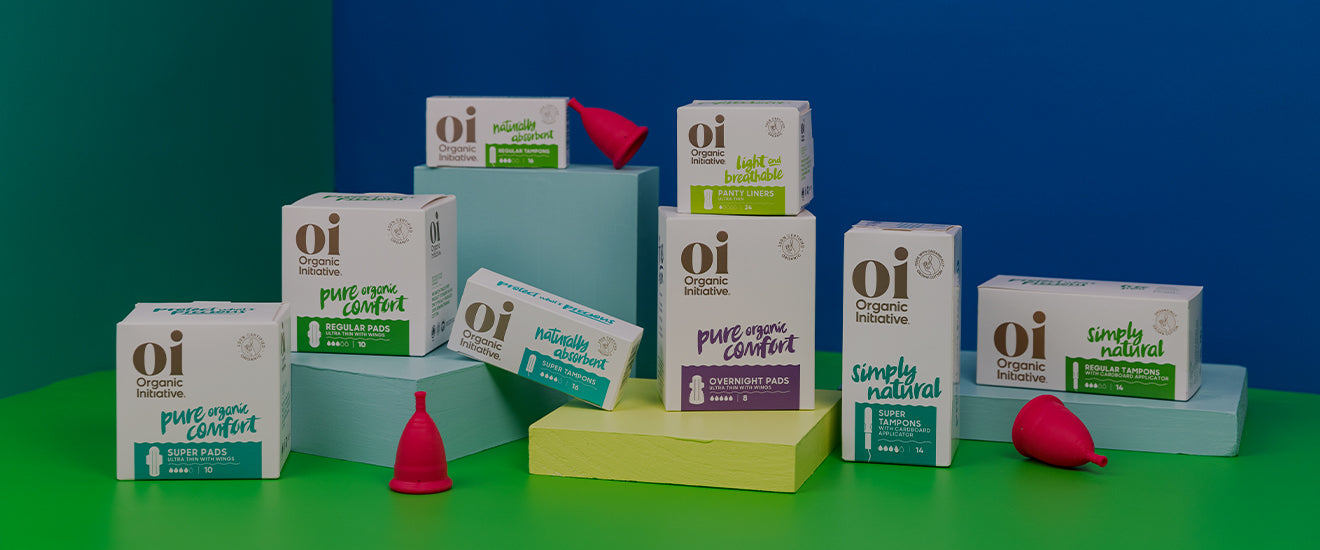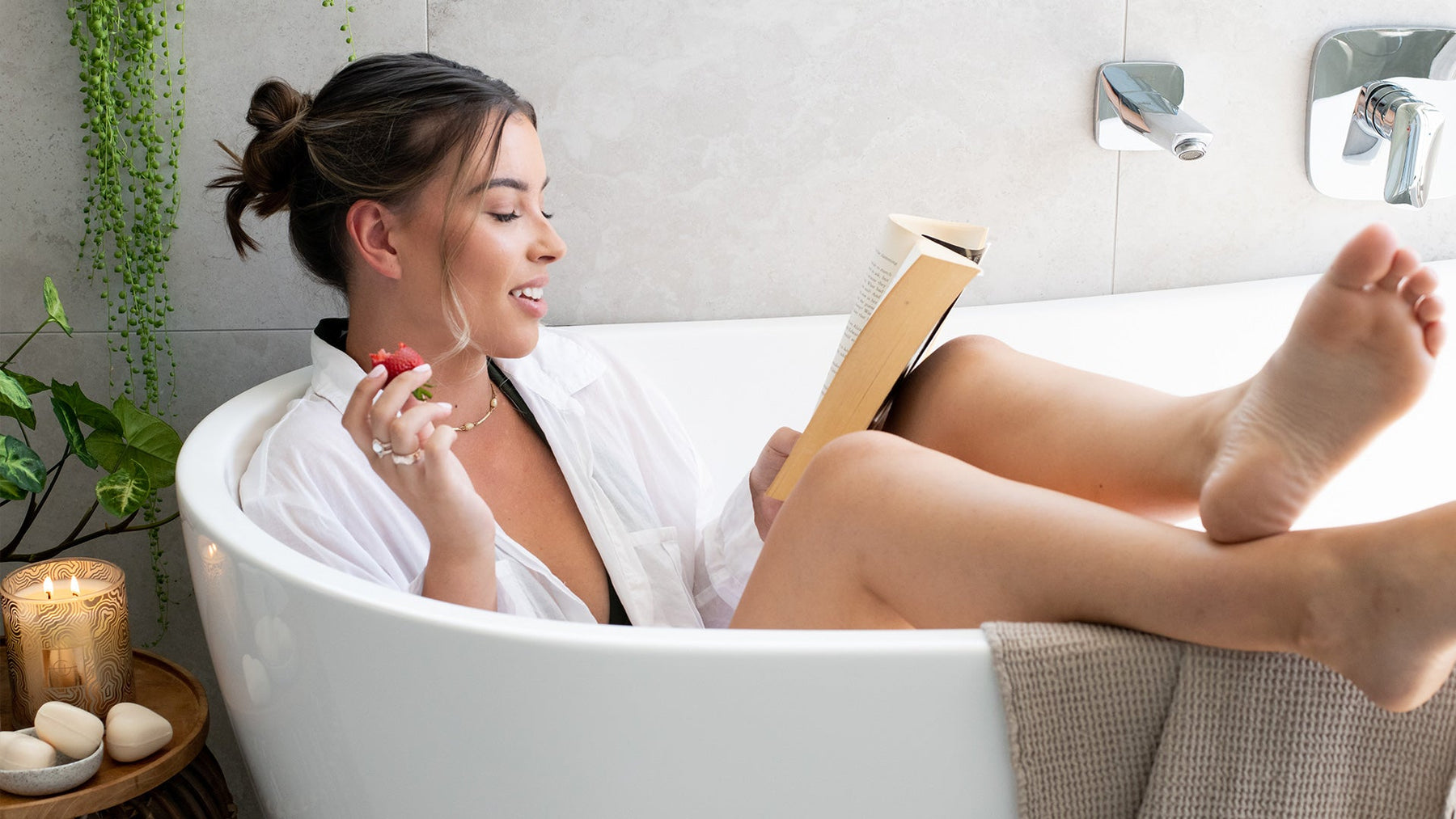Whether mild (and mildly inconvenient) or severe and debilitating, period pain affects most menstruators at some point. And since you're here reading this article, we're guessing that probably includes you.
As the uterus contracts to shed its lining each month, it's natural to experience some discomfort. But that doesn't mean you have to take pesky period pain lying down!
From heat packs to acupuncture and over-the-counter pain relief, there are plenty of ways to help stop period pain from cramping your style. Read on for the go-to remedies and simple tips for managing painful periods like a pro.
Is your period pain normal?
If you’re experiencing abdominal cramping or an ache in your lower back, don’t panic. Period pain – or dysmenorrhea, to get all doctor-y – is incredibly common, impacting around 50-90% of menstruating individuals during their reproductive years.
This pain typically occurs right before or at the start of your period, lasting for a day or two, and is felt in the abdomen and/or lower back. It can also radiate into the thighs. Some may feel dull, achy sensations or throbbing, while others can have sharp, stabbing cramps. No two periods are the same and everyone's experience is unique.
What causes period cramps and aches?
Menstrual pain is caused by contractions in the uterus, triggered by compounds called prostaglandins. These contractions assist with the shedding of your uterine lining but can unfortunately cause unpleasant cramping.
Prostaglandin levels differ from person to person, which helps explain why some of us are more susceptible to pain. According to The American College of Obstetricians and Gynaecologists (ACOG), they’re at their highest on the first day of the menstrual cycle, then taper off over the next few days.
Tips and remedies for managing menstrual pain
So it’s the day before Aunt Flo is due, and you can feel her impending arrival deep in your lower belly. Instead of taking to bed with a block of chocolate, try these methods to help you conquer those pesky period pains and get back to feeling your best.
Applying heat
When those all-too-familiar cramps kick in, a hot water bottle or a warm wheat bag on your back or tummy can work wonders. The soothing heat helps relax the muscles and eases the discomfort. Plus, it's like getting a warm hug during tough times!
If you like to soak, a relaxing warm bath can also help ease your body and mind during your period. The warm water helps relax muscle tension and provides a much-needed moment of self-care.
Over-the-counter pain relief
When you're in need of fast relief, over-the-counter pain relievers like naproxen (Aleve, Naprogesic) or ibuprofen can be your best friends. These nonsteroidal anti-inflammatory drugs (NSAIDs) block the production of prostaglandins – those cramp-inducing compounds we mentioned earlier.
However, you should always check with your healthcare provider before using and make sure you follow the recommended dose. Your doctor may also prescribe a stronger NSAID if your pain is persistent.
Herbal supplements and teas
If you prefer a natural approach, herbs like chamomile, ginger, peppermint and cramp bark have been known to provide relief from menstrual pain. These can usually be taken in supplement form or in a warm and soothing tea. As with any supplement, seek professional advice before starting use.
Gentle exercise
While curling up in bed may seem appealing (and it’s totally OK if you need to), gentle exercise like yoga or walking can help improve blood flow and alleviate cramps. Remember, keeping active during your period doesn't have to be intense – listen to your body and do what feels good for you.
Acupuncture
If you're open to alternative remedies, some people find relief from menstrual pain through acupuncture. This ancient practice involves inserting thin needles into specific points on your body – and is much more relaxing and less scary than it sounds!
Hydration and a balanced diet
It sounds dull, but staying hydrated and maintaining a balanced diet can help you to beat the bloat and manage period pain. Opt for nutrient-rich foods, sip on water and herbal tea, and try to steer clear of salty snacks that can worsen bloating
When to see your doctor
Cramps are a common (if annoying) symptom of menstruation and are not usually a reason for concern. However, if you find your pain is severe or debilitating, you have mild pain accompanied by other symptoms, or your usual pain relief no longer works, you should seek the advice of your GP. They will be able to investigate whether an underlying health condition such as endometriosis or uterine fibroids is contributing to your pain.
Or for regular, run-of-the-mill period pain, try the tips and remedies above to find what works best. Most importantly, remember to be kind to yourself during this time, listen to your body and learn what’s ‘normal’ for you.

No Greenwashing.
Period.



